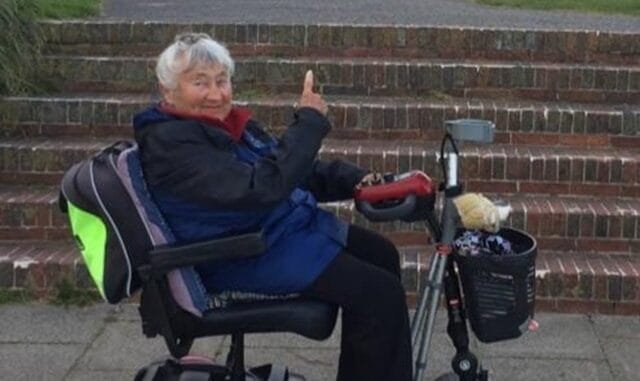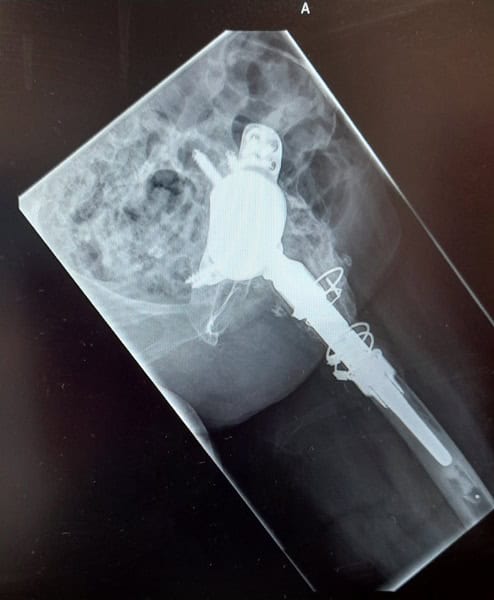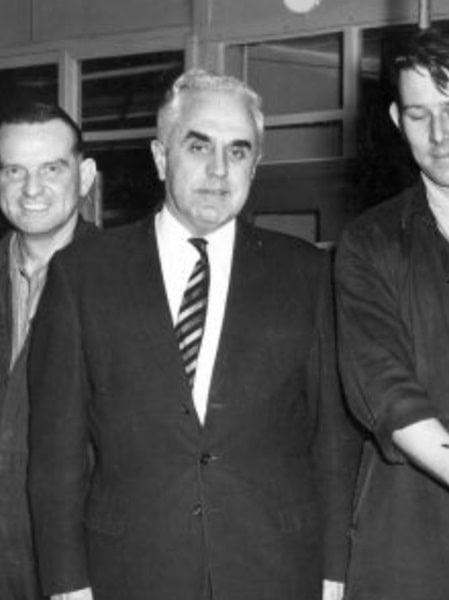
My former MP is now more disabled than me.
Craig Mackinlay has lost his hands and feet to sepsis and is bravely tackling learning how to live with prosthetic limbs. Walking into parliament to the cheers of the house, and showing how to manage an appearance of normal life after such drastic surgery was an important moment of optimism for disabled people.
The NHS has now committed to providing good prosthetics for amputees but the best ones are hugely expensive: between £20,000 and £40,000 for hands and legs can cost between £3000 and £25,000, but need replacing every three years or less.
The NHS allocates about £60 million a year for this service.
The new hip joint I received two years ago was designed by my consultant specifically for me and was made in Germany. I had to wait six months for it to be made. One of the registrars who had helped to stitch me up (neat scar, thanks), told me it cost around £35,000. I was amazed – so much money and not made in the UK!

We have a proud history of precision engineering in the UK, so why aren’t we making more products for disabled people?
I grew up in the West Midlands, where most people worked in engineering. My dad was an aircraft engineer. During the war he made fighter planes for the RAF, and in the 60s he worked on the engine for Concorde – very proud! But his factory also made parts for Trident – boo hiss!

Now the arms industry earns £85 billion in exports. Shouldn’t at least some of this expertise be turned to making less destructive products?
In the 1970s a Midlands arms company, Lucas Aerospace, was about to make thousands of its workers redundant – citing foreign competition and technological change.
The Lucas workers wouldn’t accept the company plan. Their trade union came up with all kinds of products they could be making instead of killing machines, socially useful stuff like more efficient kidney dialysis equipment or better wheelchairs – products that used their engineering skills, would save their jobs and benefit the whole community.
The Lucas management didn’t want to take up the workers plan, but many of the products went on to be made by others such as small companies set up by the Greater London Council in the 1980s, under Ken Livingstone.
It’s an idea that has a ring of poetic justice about it – turn the expertise that makes landmines into designing artificial legs for landmine victims!
Through Access Thanet I hear of so many things that are needed to make life easier for disabled people. The products would be treasured for years and wouldn’t be blown up on some distant battlefield!
One in five UK disabled children waited for more than four months for a wheelchair in the first quarter of 2024.
It makes me sick to think of all the expertise going into such things as better targeting for drones to kill people more efficiently! I need a mobility scooter that works in rain, climbs steps easily and doesn’t cost a fortune! In fact, I’d like a personal drone to carry me around! Now there’s a worthy project for a weapons company!
Perhaps, as in the radical 1970s Lucas plan, the highly skilled workers at places like our local arms company, Instro Precision, could change from making weapons that kill foreign children to making wheelchairs so that UK kids can enjoy life more?
Maybe now Craig is no longer standing for parliament he could help us point them in the right direction.

